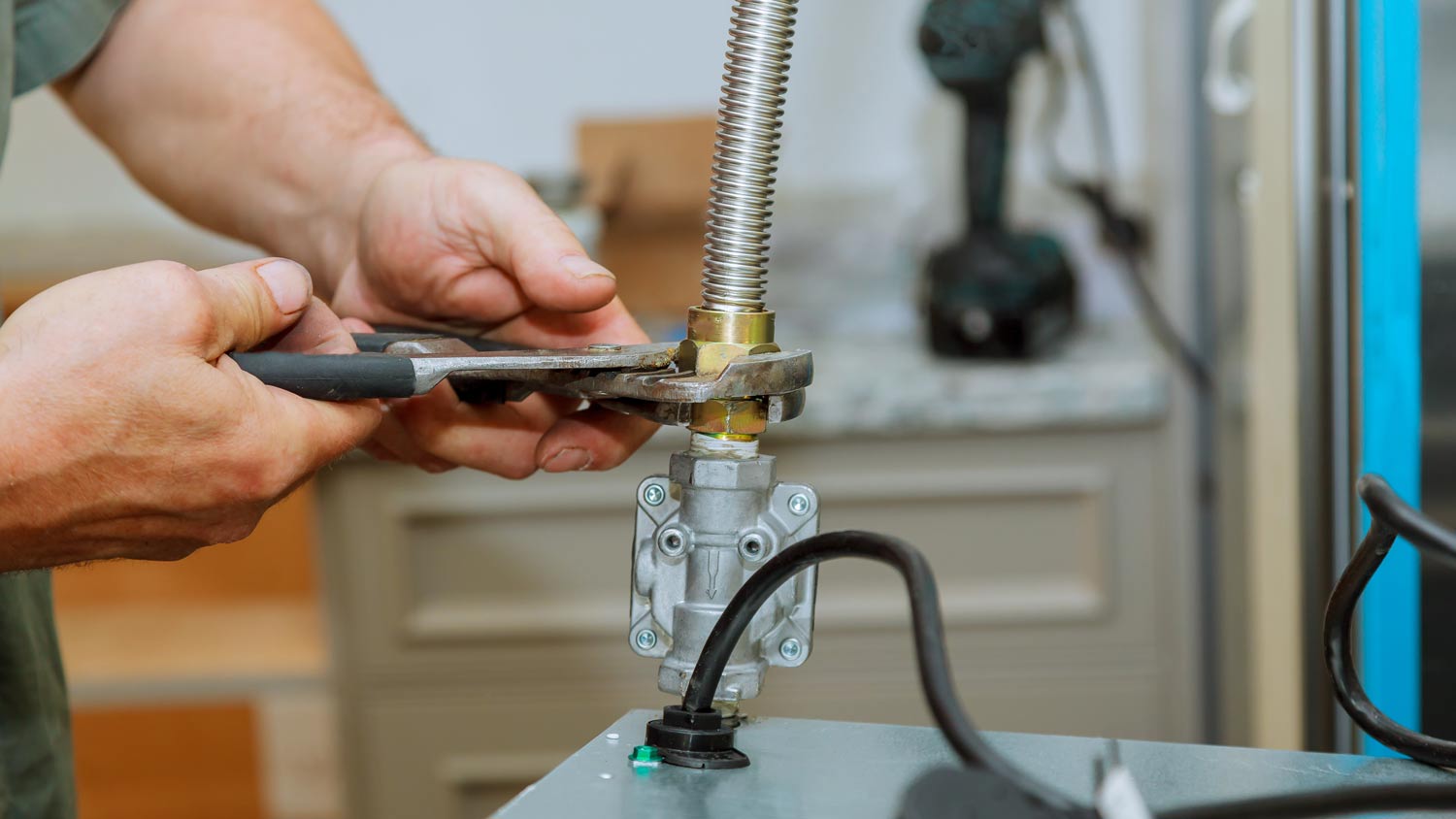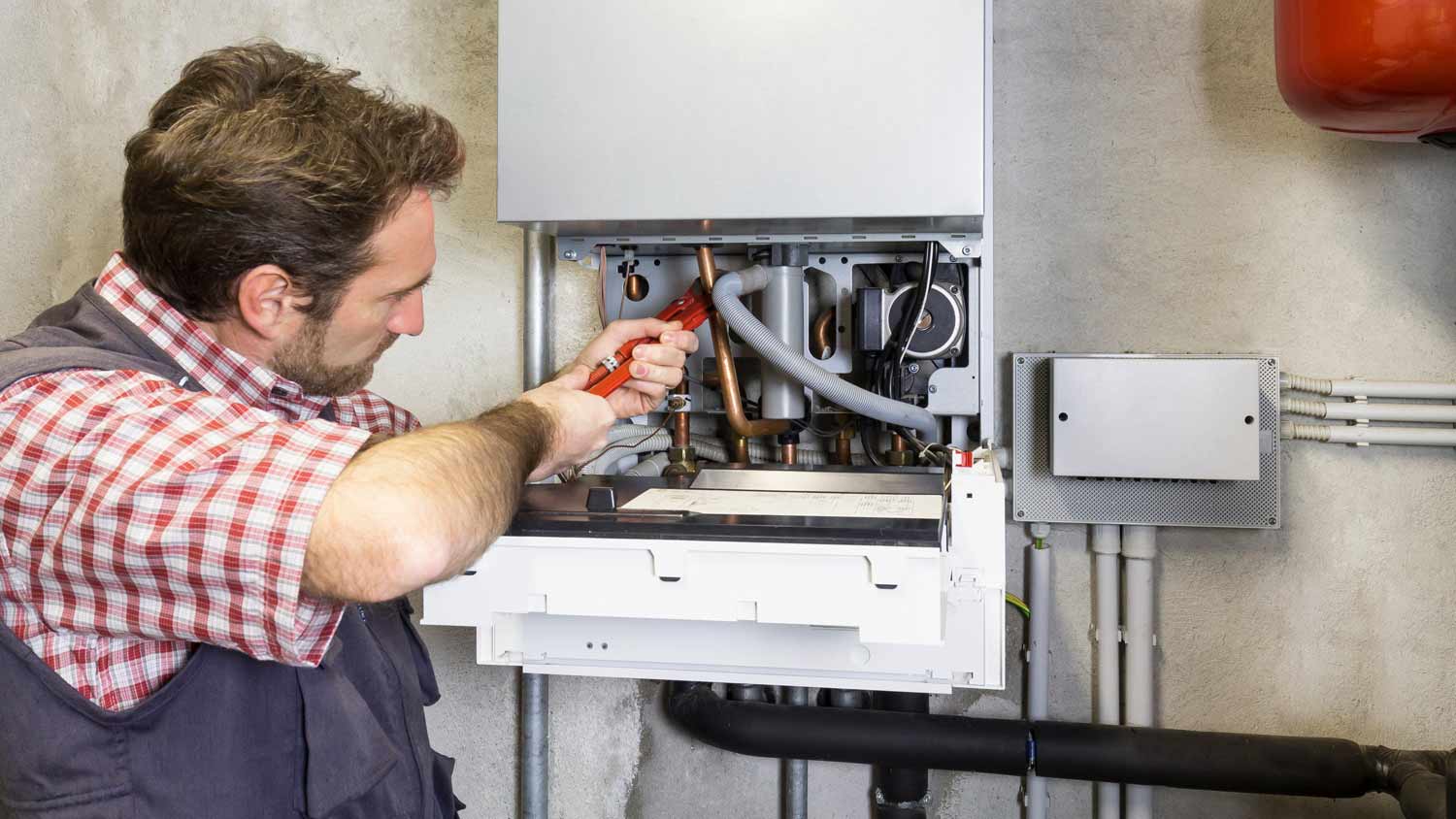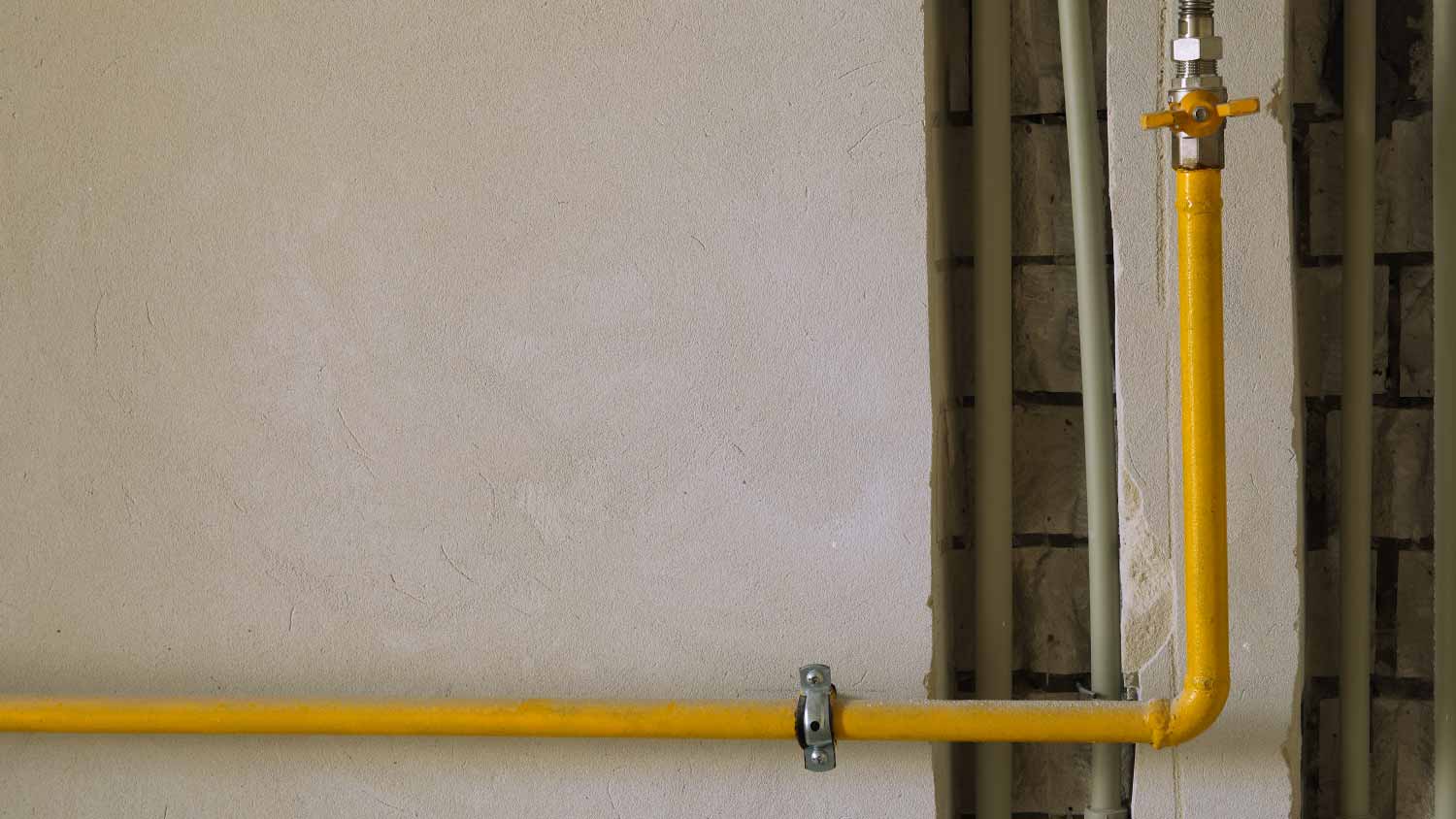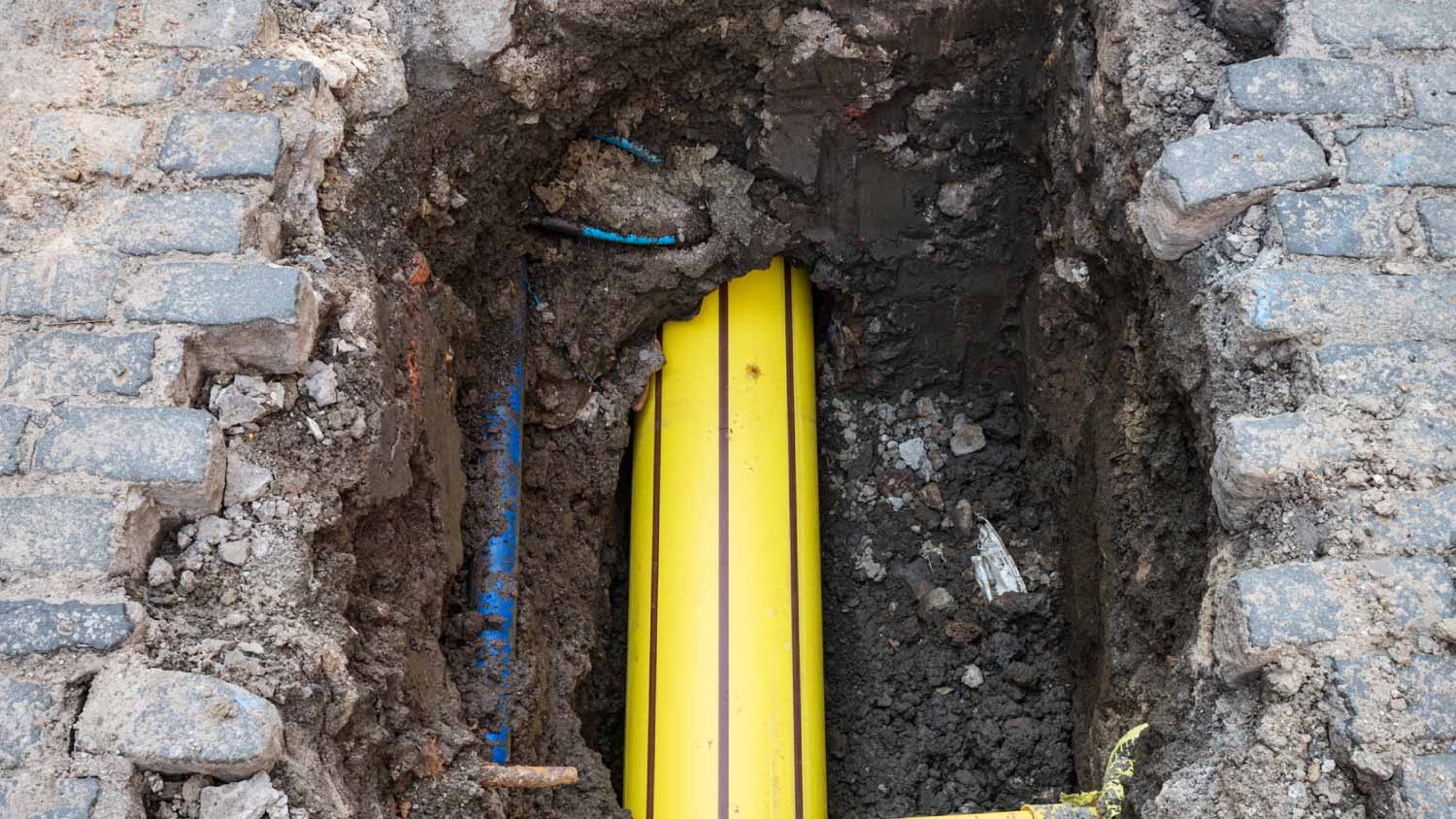
Find costs to repair a gas line and plan your budget based on the problem, from excavating for a new line to making a minor repair to an existing one.
No gaslighting here


Gas fitters and plumbers can both run gas lines and perform necessary maintenance.
The term “gas fitter” is more commonly used in Australia, Canada, and the U.K.
In the U.S., the term plumber or gas line plumber is more common.
Gas fitters and plumbers are also qualified to work on gas-powered appliances.
Building a new home or renovating your current one often requires installing or moving natural gas lines. In some cases, you’ll also need to have natural gas lines repaired by a qualified professional. Whether you call a gas fitter versus a plumber depends partially on where you live. Read on to find out the difference between these pros and learn which one you should call.

A gas fitter is qualified to work on natural gas lines. This can mean installing or repairing the gas lines themselves or the appliances that run on natural gas, such as a water heater or an oven.
The term “gas fitter” is more commonly used in the U.K., Australia, and Canada. In the U.S., plumbers, natural gas plumbers, and HVAC technicians are qualified to work on natural gas lines. In some cases, a gas fitter won’t be a plumber and will only be qualified to work on the gas lines and not on other plumbing systems.

Plumbers are known for working on the plumbing system in your home, including water and sewage lines. They also fix leaks and install fixtures like toilets and faucets, but they can also install new gas lines and repair existing ones.
Most trained and licensed plumbers are qualified to work on natural gas lines and gas-powered home appliances, such as hooking up gas dryers, water heaters, fireplaces, and HVAC systems. Before hiring a plumber to work on or install your gas lines, ask if they have the proper licensing and experience.
A professional should always do gas hookups because of the serious dangers and risks involved. Signs you might need gas plumbing repairs are rust, damaged connections, or a gas smell. If you smell gas, turn off your appliance immediately and call a professional to inspect it.
In the U.S., the more frequently used term for someone who handles gas line installation and maintenance is a plumber. HVAC technicians are also licensed to work with gas lines. So, if you’re in the U.S. and need to call someone to work on your gas lines or repair gas-powered appliances, you would call a local natural gas plumber or HVAC pro in your area. When you do hire someone, make sure to ask if they are licensed to work on natural gas lines.
From average costs to expert advice, get all the answers you need to get your job done.

Find costs to repair a gas line and plan your budget based on the problem, from excavating for a new line to making a minor repair to an existing one.

Whether it's time for pipe replacement or to hook up the range of your dreams, gas line installation cost is an important line in your budget. Let's take a look.

Gas line connections need special sealants. So can you use Teflon tape on gas lines? Here, we explore the safest way to seal gas fittings.

Flexible gas lines are a modern alternative to traditional gas lines, but are they safe? Use this guide to learn all about the safety and risks of flexible gas lines.

Moving or installing gas piping involves careful planning and execution. Review these gas pipe questions to ensure you’re ready for a conversation with a pro.

Installing a gas line is a job for a licensed plumbing professional. Let’s take a look at who installs gas lines and how much you can expect to pay.